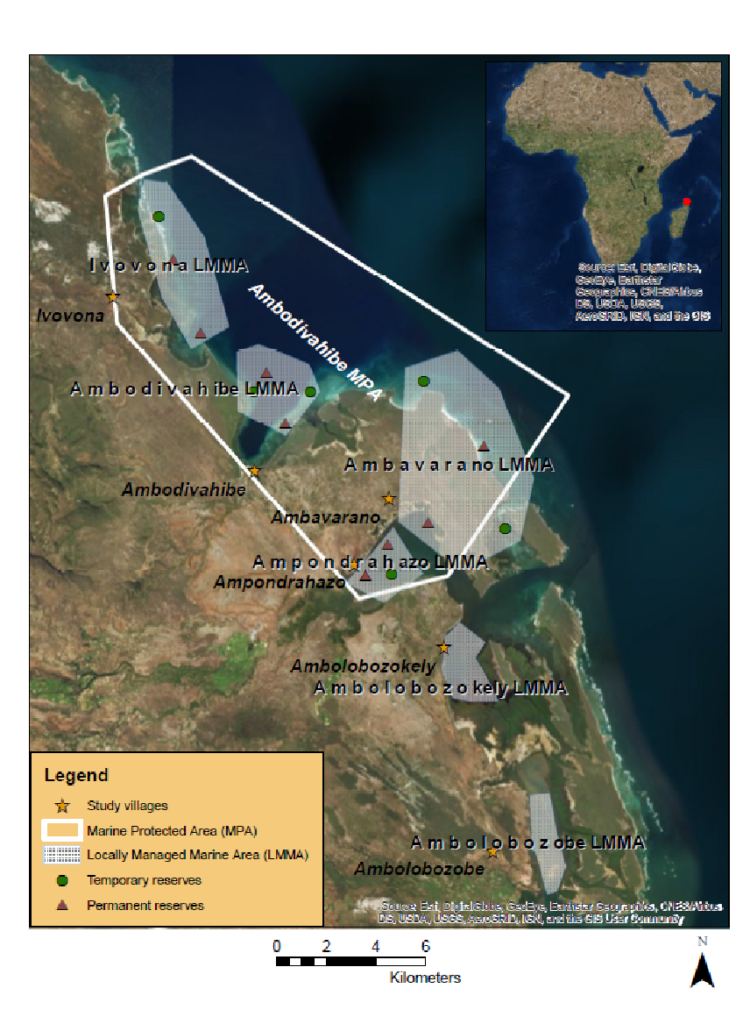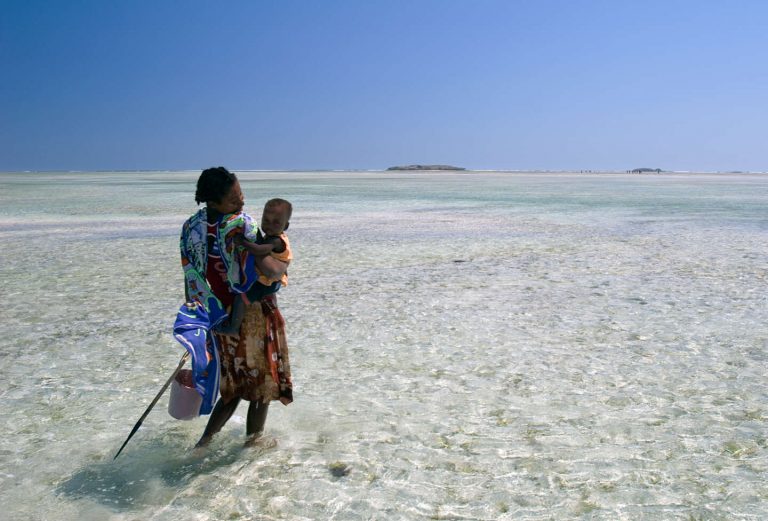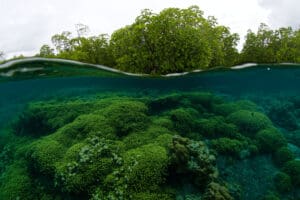A paper recently published in the journal Conservation Science and Practice has identified major drivers behind the adoption of community-based conservation in Madagascar. The research shows that ‘benefits to future generations’ was the most important reason for communities to establish a locally managed marine area (LMMA). Other factors which are often used to encourage community engagement in conservation projects, such as financial gains or food availability, were found to be less important. The study provides crucial insights into understanding people’s conservation choices, which is vital to increase the rate at which conservation initiatives, such as LMMAs, are adopted.
 This study was led by researchers at Imperial College London in collaboration with Hope Beatty, Social Science Technical Advisor at Blue Ventures, who collected the data. The research aimed to better understand what influenced the adoption of locally managed marine areas (LMMAs) by local communities.
This study was led by researchers at Imperial College London in collaboration with Hope Beatty, Social Science Technical Advisor at Blue Ventures, who collected the data. The research aimed to better understand what influenced the adoption of locally managed marine areas (LMMAs) by local communities.
Existing published research suggests that the decision to adopt conservation initiatives could also be based on how complicated the initiative is to establish, whether it provides status and income benefits, or even its compatibility with people’s beliefs and values. During the study, 30 men and women from four villages in Madagascar’s Diana region were asked what influenced their decisions to adopt an LMMA. To determine this, they had to rank what they thought were the “best” aspects of an LMMA that influenced their decision to adopt it and what they considered to be the “worst” aspects of an LMMA.
While ‘benefits to future generations’ was the most important reason for communities to establish a LMMA, conflict over resource use within and between villages was identified as the most important barrier to adopting an LMMA.
“Malagasy people believe that the success of their children is dependent on their actions now. If they do not work to protect the marine resources now, they believe their future will be in danger.” – Rodial Makampa – research assistant
These findings are important as they can help to inform the design of future conservation initiatives, ensuring the communities’ true motivations to participate are understood, increasing the likelihood of a successful project benefitting both people and nature. Additionally, the research reveals that building systems to resolve conflict collaboratively with the communities is a vital aspect of community-led conservation. “Understanding the behaviour and motivations of coastal communities towards marine resource management is key for the success of community-led action,” said Hope Beatty.
Community leaders can use the paper’s findings to encourage engagement in sustainable management of their marine resources while also equipping them to deal with barriers such as conflict. Conservation practitioners and organisations can use these results to shape future conservation initiatives to improve the likelihood of adoption by the community. Increased engagement in community-based conservation will also help to achieve ambitious international conservation and sustainable development targets through sensitive, inclusive and socially just methods to address the biodiversity and climate crises while defending coastal communities’ human rights.
This work was supported by the Natural Environment Research Council and Margaret A. Cargill Philanthropies via the Alliance for Conservation Evidence and Sustainability.
Read the full article The importance of future generations and conflict management in conservation
Learn more about rebuilding fisheries together with coastal communities
Discover more fish in the sea: Community-led marine conservation works for people and nature


















